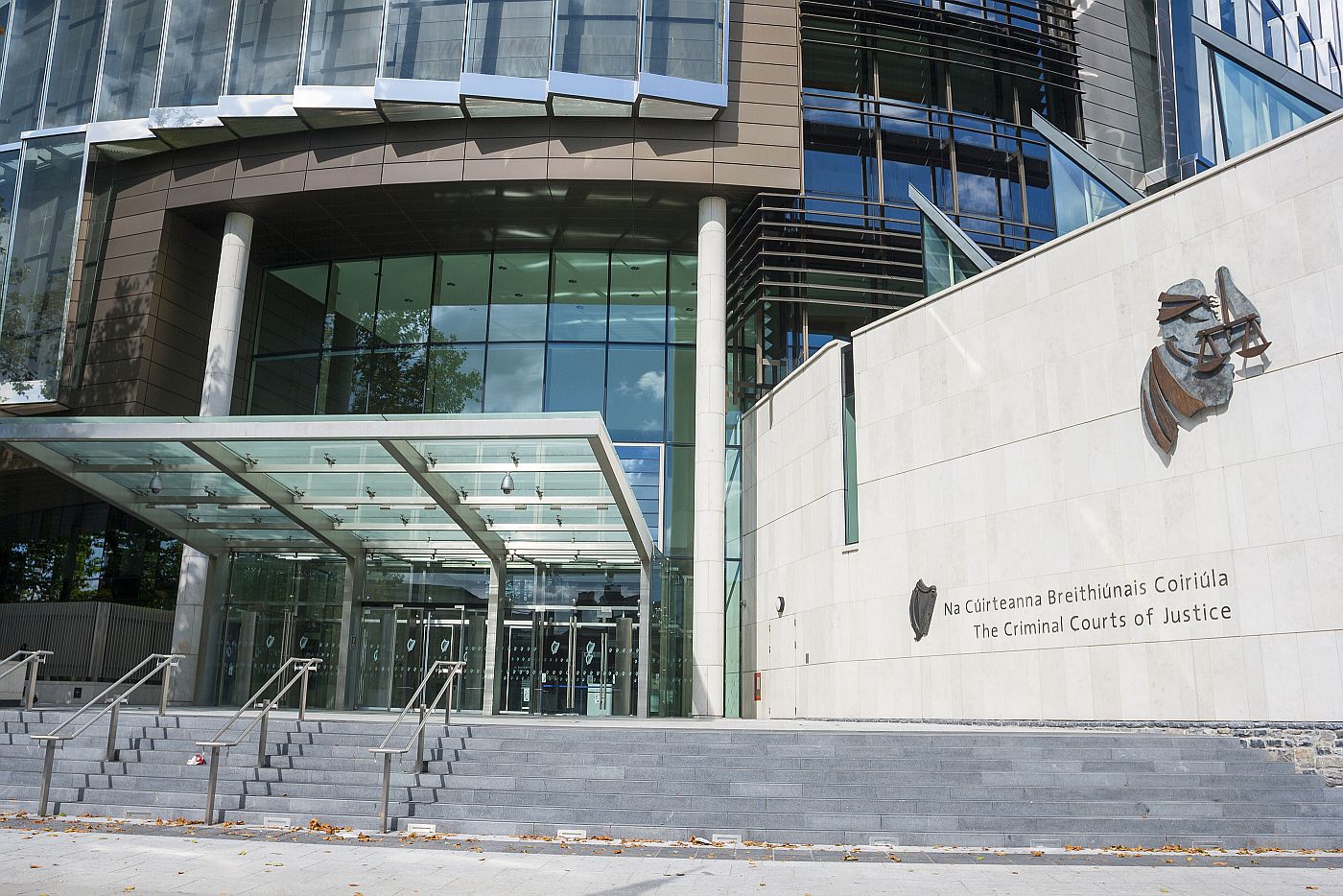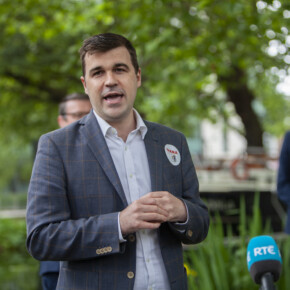Men to be sentenced for roles in CHC fraud
Padraig Conlon 24 Apr 2023
By Eimear Dodd
A judge will read almost 200 victim impact statements before sentencing four men for their roles in a scheme to defraud investors in Custom House Capital over a decade ago.
The company’s former CEO Harry Cassidy (67), John Whyte (53), former head of private clients and Paul Lavery (47), former head of finance, pleaded guilty to conspiring with others to defraud investors in and clients and customers of Custom House Capital Ltd (CHC) by intentionally misleading them as to where and/or how their assets had been placed contrary to common law.
John Mulholland (73) of The Foxes Covert, Mount Juliet estate, Thomastown, Co Kilkenny, pleaded guilty to one count of being neglectful in the discharge of his duty of as a non-executive director of CHC.
The court heard this was in relation to the commission by the company of acts of dishonestly by deception inducing clients to entrust funds to the company or to refrain from removing funds previously entrusted to the company with the intention of making gain for itself and causing loss to another.
All of the offences occurred within the State on dates between October 1, 2008 and July 15, 2011.
At Dublin Circuit Criminal Court last Friday, Judge Orla Crowe said there was a lot of material that the court needed to review before finalising the case.
She adjourned the case until May 12 and remanded Cassidy of Clon Brugh, Aitkens Village, Stepaside, Co. Dublin, Whyte of Beechpark, Lucan, Co. Dublin, Lavery of Rafeenan, Ballynod, Co Monaghan and Mulholland on the same terms to that date.
A total of 197 victim impact statements were submitted to the court.
Five victim impact statements were read in full to the court, while extracts were also taken from a selection of other statements.
Clients spoke of the financial losses they had suffered and of the emotional and psychological effects they and their loved ones had faced over the last 10 years.
Some statements also outlined the devastating impact of the loss of savings and investments intended to provide a pension.
Nick Coy said his aunt Helga asked him to look after her investments in CHC as she was living in Germany.
He said he didn’t tell his aunt, who passed away in 2021, about the company’s collapse in the hope that her money might be recovered.
Mr Coy said his aunt’s lifework was “effectively stolen” by Cassidy.
He added that his aunt lost many things during the Second World War, but Cassidy “did more damage” to her life.
Another CHC client, now 74, said they had never established the full extent of their losses and have had to continue working.
They said they wished the defendants “no rest in this life for their ill deeds”.
A 72-year-old CHC client said her net loss was over €143,000.
She said she received assurances from CHC that her money was safe, but later learnt that money was taken from her account without permission.
She said the collapse of CHC still “haunts” her and she lives with “constant fear” about her financial security.
In another victim impact statement, Catherine Heron said the family’s small business almost went into administration following the collapse of CHC, which caused huge stress to her late husband Patrick, who passed away in 2014.
Ms Heron said she wanted to be present as her late husband couldn’t be. She said she felt he was with her in court.
Detective Inspector Alan McGovern told Lorcan Staines SC, prosecuting, that CHC’s core activities included investment management and pension advisory services.
The company bought a large portfolio of investment properties in mainland Europe.
CHC had entered multi-million euro agreements to buy properties in Europe at the time of the financial crash in 2008.
At this point, the company had paid deposits, but was not in a position to transfer money to complete the agreed property transactions.
The court heard that CHC began to use client funds in 2008 to meet these obligations, often without the knowledge or authorisation of the affected investors.
Around 95 per cent of the shares in CHC were owned equally by Mulholland and Cassidy, while Whyte had a shareholding of 5 per cent.
Cassidy and Whyte were both directors of CHC. Mulholland was a director of the European Pensioneer Trust (EPT) which operated from the same building in Merrion Square as CHC.
The court heard Mulholland’s duty as an non-executive director of CHC was to ensure the company operated legally and responsibly.
High Court inspectors were appointed to CHC in July 2011 following an application by the Central Bank.
The inspectors found that €56 million of client money had been inappropriately transferred to property investments. A liquidator was later appointed to CHC and the process remains ongoing.
Kieran Wallace, a partner in KPMG and liquidator of CHC, provided an update on this process which was read to the court by Mr Staines.
Mr Wallace said CHC had €253.4 million across over 3,000 accounts held by 2,107 clients on the date of liquidation.
€61 million in client funds was found to have been misappropriated. €41 million (64 per cent) of this amount has been recovered, with clients receiving €39 million so far as of March last. Mr Wallace noted this was a complex liquidation which caused delays.
Det Insp McGovern agreed with Hugh Hartnett SC, defending Cassidy, that his client was working as an English teacher in Germany when a warrant for his arrest was issued in 2020.
He later returned to Ireland voluntarily.
The garda witness accepted Mr Hartnett’s suggestion that client money was misappropriated in an attempt to keep CHC afloat.
He said he couldn’t answer when Mr Hartnett asked if there is still property to be sold as part of the liquidation of CHC.
Det Insp McGovern agreed with Sean Guerin SC, defending Mulholland, that the regulator was involved in CHC during the period in question, issuing directions to the company in March 2009 before imposing requirements on CHC that June.
The detective inspector accepted that the failure of the company was “personally and financially devastating” for Mulholland.
Det Insp McGovern agreed with Garnet Orange SC, defending Whyte, that his client was responsible for the funds originally established by Guinness and Mahon Bank before CHC was founded.
He added that Whyte was also a director of CHC, a minority shareholder and had signed off on misleading valuations issued to some clients.
He agreed with Mr Orange that there were a number of governance issues with CHC and employees reported Cassidy to have a “dictatorial” management style.
Mr Orange suggested CHC became focused on European property as the Irish property market slowed.
The detective inspector agreed that Whyte would have come under pressure to allow access to funds.
Mr Orange suggested from his client’s perspective, the funds appeared to secure, even if the money was not where it should have been, and his client was surprised when he realised how much money was in jeopardy.
Det Insp McGovern partially accepted this and agreed there would have been “an element” of surprise for Whyte.
He agreed with Mr Orange that his client had been cooperative with separate investigations.
Det Insp McGovern told Mark Mulholland KC, defending Lavery, that his client was a salaried employee of CHC and made no financial gain.
He accepted that Lavery’s culpability would be lower than that of the company directors and that Lavery’s lack of experience meant he was under-qualified for the role.
He agreed with Mr Mulholland that CHC was a “toxic environment” and his client “kept his head down and did as he was told” instead of resigning or challenging others.
He also accepted that other employees reported that Lavery allegedly faced physical and verbal assaults from Cassidy.
Counsel said their clients were remorseful and apologised for their actions.
Testimonials were also handed into the court on behalf of the four defendants.
Mr Hartnett said his client’s actions were “an attempt to keep the ship afloat at a time when there were worldwide difficulties”, but that he accepts it was “illegal and wrong”.
Cassidy had to sell his own home and the Merrion Square premises.
He is currently in rented accommodation, but has been served with an eviction notice.
Mr Hartnett said this was not a case in which “a man has enriched himself from this behaviour” and his client had in fact “beggared himself”.
Cassidy continues to work teaching English as a foreign language.
He is also disqualified from serving as a company director for 15 years and it is a “matter of humiliation” for him, Mr Hartnett said.
A medical report was also handed into the court on behalf of Cassidy.
Mr Guerin said his client was the first of the four defendants to enter a guilty plea. Mulholland was not involved in CHC on a day-to-day basis.
Mr Guerin noted that the regulator was also examining CHC and would have had significantly more tools available to it than those open to a non-executive director.
He asked Judge Crowe to take this into consideration when assessing his client’s level of culpability.
Mr Guerin said his client lives in an apartment owned by his wife. His client has health issues and has been treated for depression.
Mr Guerin asked the court for as much leniency as possible for his client.
Mr Orange said it is acknowledged that his client was not robust enough to stand up to others and had failed in his duties to protect the funds under his care.
Defence counsel suggested his client believed the funds would be repaid and didn’t believe until “late in the day” that the money was in jeopardy.
His client had believed decisions were being made in “good faith” and had the “best interests” of clients at heart, Mr Orange said.
Mr Orange said his client had cooperated fully with the Central Bank, the Pensions Board and gardai when he realised the full extent of what had happened.
Whyte continues to work in the industry, but has been disqualified as a company director for 10 years.
Mr Mulholland handed in a letter of apology from his client to the court.
He said Lavery was someone who was “ill-suited” in personality and experience for the role of head of finance.
“Other people would have walked out the door.
Sadly my client chose to keep working, something he bitterly regrets,” Mr Mulholland said.
Mr Mulholland said his client has a lower level of culpability than directors, and didn’t financially benefit.
Lavery was also working in a “toxic environment” and “bullied physically and verbally”.
An email from September 2011 was handed to the court along with a letter from a social worker, Lavery’s GP and a social worker.
Mr Mulholland said Lavery has also been struck off by the professional body for accountants.
Separately, Ciara Kelleher (51), the firm’s then senior portfolio relationship manager, will face a re-trial in 2025, after a jury failed to reach a verdict on the charge she faced earlier this year.
Ms Kelleher of Blackhorse Ave, Dublin 7 has pleaded not guilty to one count of conspiring with others to defraud investors, clients, and customers of Custom House Capital Ltd. by intentionally misleading them as to where or how their assets had been placed in the investment firm on dates between October 2008 and July 2011.











